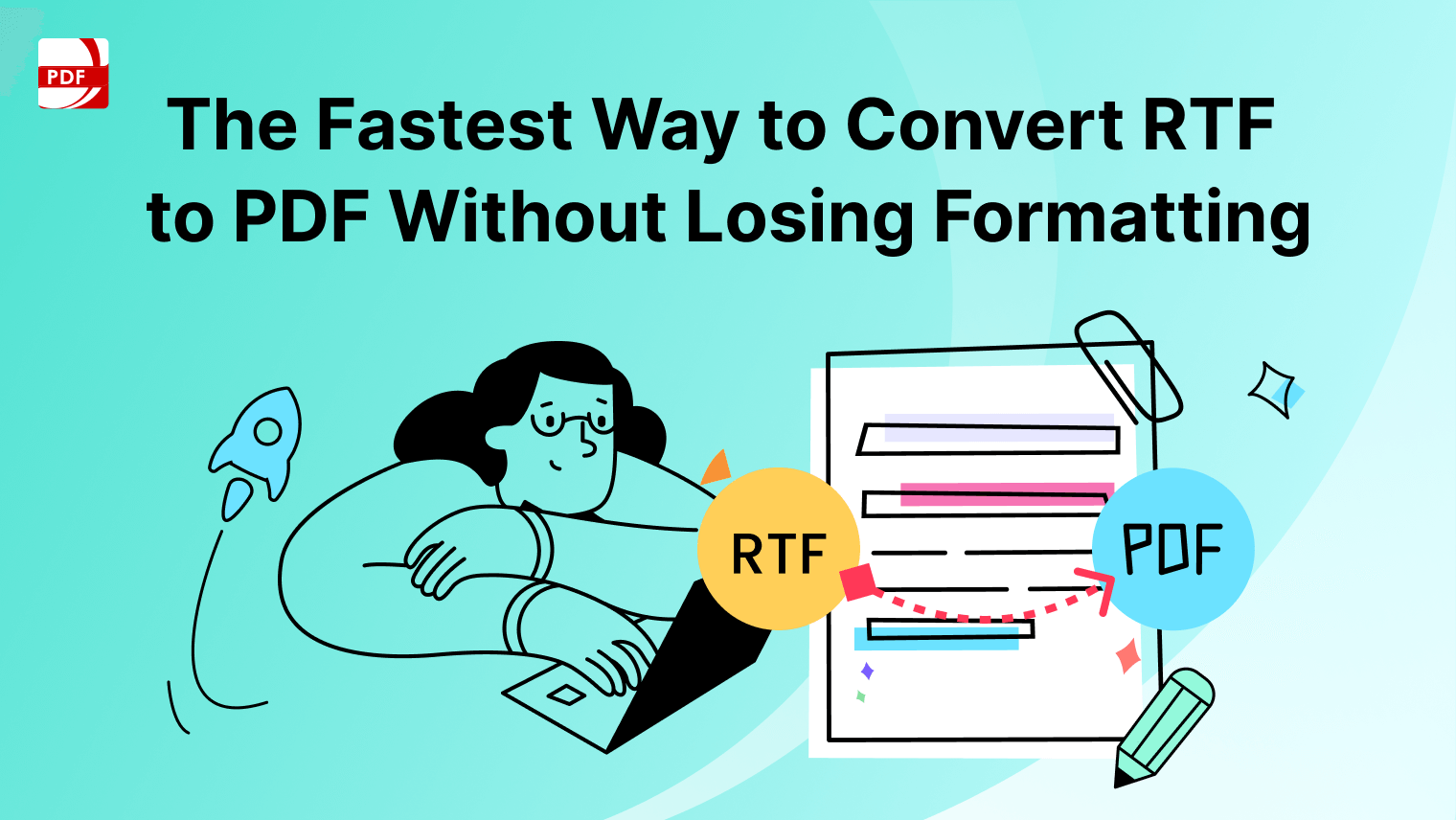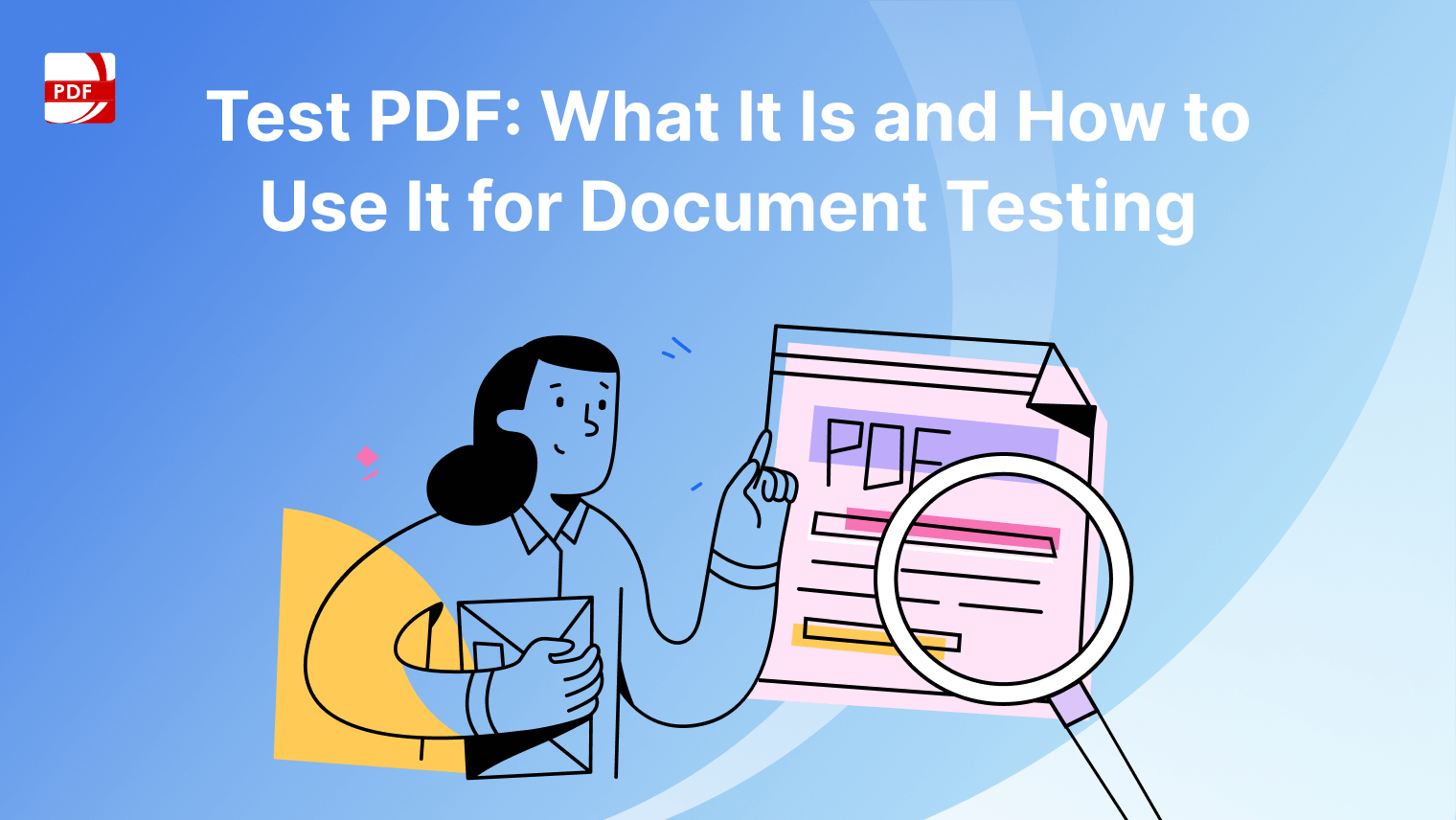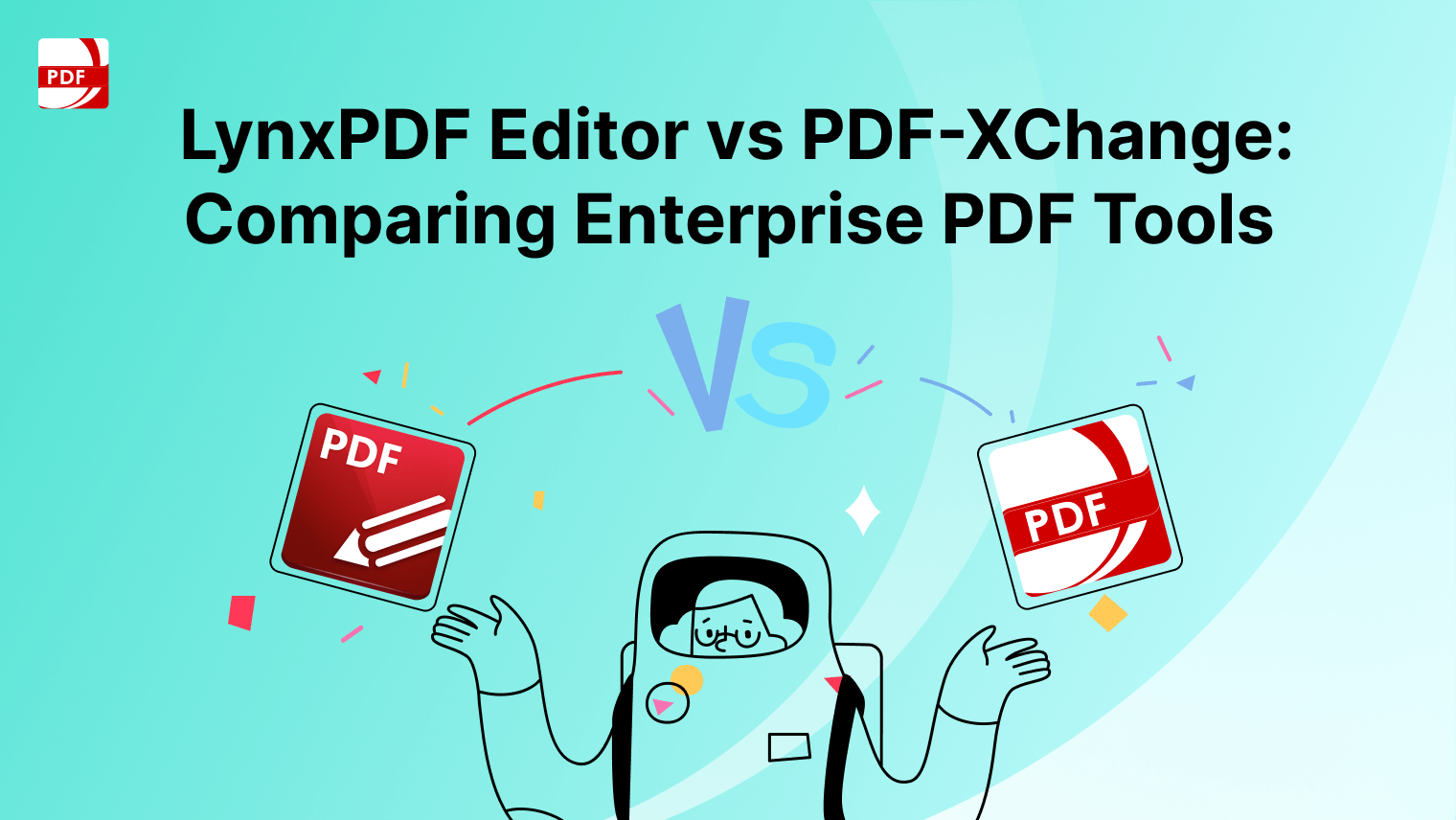Business contracts are vital for establishing clear, legally binding agreements between parties. Whether you're a seasoned entrepreneur or starting a new venture, understanding how to write a business contract is crucial for protecting your interests and ensuring successful collaborations.
This guide will walk you through the process, including how PDF Reader Pro's "Business Partnership Agreement PDF Template" can simplify it.
Understanding the Importance of Business Contracts
A business contract is not just a formal document; it's a cornerstone of professional relationships, safeguarding the interests of all parties involved.
These legally enforceable agreements are vital in the business world for several reasons:
Key Elements of Business Contracts
- Legal Enforceability: They are binding agreements that can be legally enforced, ensuring compliance from all involved parties.
- Clarity in Roles and Responsibilities: Contracts specify the duties and expectations of each party, helping to prevent misunderstandings.
- Financial Aspects and Payment Terms: They detail financial obligations, including payment schedules and amounts, safeguarding financial interests.
- Duration of Agreement: The contract outlines the timeframe of the business arrangement, providing a timeline for deliverables and payments.
Types and Functions
- Variety of Contracts: Business contracts come in many forms, including employment contracts, lease agreements, and agreements with independent contractors.
- Protection of Interests: Confidentiality clauses, non-compete agreements, and non-disclosure agreements protect sensitive information and business interests.
At #LDNBlockchain24, uncover how Smart Contracts are reshaping business. We're exploring their role in automation, security, and transforming agreements.
🎟️ Unlock these insights with your Early Bird ticket and dive into blockchain's practical power! https://t.co/A7SAHdeU2m pic.twitter.com/Ej8oPc7IuI
— London Blockchain Conference (@LDN_Blockchain) December 14, 2023
Preventing and Resolving Disputes
- Reduces Misunderstandings: Clear contract terms help avoid disputes by providing unambiguous guidelines.
- Reference in Breaches: In case of a breach of contract, the document serves as a reference for dispute resolution.
Importance of Specific Clauses
- Termination Clauses: These clauses define the conditions for contract termination, protecting all parties.
- Employment Contract Specifics: These contracts cover roles, responsibilities, and compensation for employees, establishing clear employment terms.
Customizing for Specific Needs
- Contract Templates: Starting with a template, businesses can tailor contracts to specific partnerships.
- Reflecting Unique Business Relationships: Customization ensures that each agreement accurately reflects the nuances of the individual business arrangement.
Discover our Nanny Employment Contract template for a comprehensive hiring solution!
Essential Elements of a Business Contract
When drafting a contract, certain elements are essential for its validity:
- Parties' Information: Include the full names and contact details of all parties involved.
- Contract Terms: Clearly define what each party is obligated to do.
- Payment Terms: Specify payment amounts, schedules, and methods.
- Duration: State the start date and the duration of the contract.
- Confidentiality Clause: If necessary, include terms to protect sensitive information.
- Termination Clause: Define how the contract can be terminated by either party.
- Dispute Resolution: Outline how any disputes will be resolved.
- Signatures: Ensure all parties sign the contract, making it legally binding.
EMPOWERMENT | Tip of the day #14 👇 pic.twitter.com/wbTbdRmgjh
— Lawpoint Business Contracts (@_Lawpoint) December 20, 2023
Everything is much simpler when you break it down. Now, let's get started with the actual writing of your business contract!
Dive into our resume resource for the ultimate Marketing Agreement PDF Template!
Writing the Contract
- Identify the Parties: Begin by clearly identifying all the parties involved in the contract.
- Define the Scope: Clearly describe the services or products being exchanged or the nature of the partnership.
- Detail the Terms: Be specific about every aspect of the agreement, including deadlines and obligations.
- Include Payment Details: Clearly outline the payment terms, including amounts, deadlines, and penalties for late payments.
- Review Legal Compliance: Ensure that your contract adheres to relevant laws and regulations.
- Draft the Contract: Write a clear, concise, and comprehensive draft of the contract.
Explore our resume resource for the essential Rent to Own Contract PDF Template!
Use a Business Partnership Agreement PDF Template
For those forming a business partnership, PDF Reader Pro offers a "Business Partnership Agreement PDF Template" that significantly simplifies the process.
This template includes standard clauses and sections that are essential in a partnership agreement, such as:
- Division of Profits and Losses: How profits and losses will be shared among partners.
- Management and Decision-Making: Outlines how the business will be managed and decisions made.
- Dispute Resolution: Provides a framework for resolving conflicts between partners.
- Exit Strategy: Details how a partner can exit the partnership.
The template is easily customizable, allowing you to tailor it to your specific needs while ensuring that all legal bases are covered.
Discover our expert recommendations on drafting a solid partnership agreement!
How To Write A Business Contract: Best Practices
Writing a business contract is a critical skill in the corporate world.
Whether it's a service agreement, lease agreement, or any other type of contract, following best practices ensures the legal contract is sound and enforceable.
Here are key guidelines to keep in mind:
1. Understand Different Types of Business Contracts
- Diverse Contracts: Familiarize yourself with various types of business contracts, including legal agreements for services, lease agreements, and non-compete agreements.
- Select the Right Template: Choose a business contract template that aligns with the type of contract you need, be it a service agreement, lease, or partnership agreement.
2. Clear and Precise Language
- Avoid Ambiguity: Use clear, straightforward language to ensure all parties clearly understand the terms.
- Relevant Details: Include all relevant details such as legal names, dates, and specific terms.
3. Include Essential Elements
- Party Information: Clearly identify all parties involved (e.g., Party A, Party B) with legal names and contact information.
- Detailed Obligations: Specify each party's obligations and responsibilities in detail.
- Payment Terms: Clearly outline payment schedules, amounts, and conditions.
4. Address Intellectual Property and Confidentiality
- Protect IP Rights: Include clauses that protect intellectual property rights if applicable.
- Confidentiality: Add confidentiality clauses to protect sensitive information shared during the business relationship.
5. Legal Compliance and Enforceability
- Adhere to Contract Law: Ensure the contract adheres to local and national contract laws to be legally enforceable.
- Written Agreements Over Oral: While oral agreements can be enforceable, written contracts are preferable for clarity and legal standing.
- Review by a Business Contract Lawyer: Have a lawyer specializing in contract law review the document, particularly for complex agreements.
6. Include Dispute Resolution Methods
- Arbitration Clause: Consider including an arbitration clause to outline how disputes will be resolved.
- Specify Jurisdiction: Define the legal jurisdiction that will govern the contract.
7. Ensure Proper Execution
- Signatures: Ensure all parties sign the contract. Digital signatures are legally acceptable in most jurisdictions.
- Witnesses and Notarization: In some cases, witnesses or notarization may be required for additional legal validity.
8. Regular Updates and Amendments
- Review and Amend: Regularly review and update contracts as business relationships evolve.
- Formal Amendments: Make amendments formally and ensure they are signed by all parties.
Explore our recommendations for resources on crafting interactive PDF forms tailored for business needs!
How To Write A Business Contract: FAQ
Are Oral Contracts Legally Binding?
Yes, oral contracts can be legally binding, but proving the terms and enforcement can be challenging. For clarity and legal standing, a contract in writing is always preferable. This ensures that all relevant details are documented and agreed upon by all parties involved.
What Makes a Contract Enforceable?
An enforceable contract must contain a clear offer, acceptance, and consideration (exchange of value). It should include all relevant details, be clear in its terms, and be entered into by parties who have the legal capacity to contract. Both written and verbal contracts can be enforceable, but written contracts provide more certainty.
How Important is Including an Arbitration Clause?
Including an arbitration clause is important if you prefer disputes to be resolved outside of court. Arbitration can be a quicker and less expensive method for resolving legal disputes. This clause should detail the arbitration process and how arbitrators will be selected.
What Should Be Included as ‘Relevant Details’ in a Contract?
'Relevant details' include the identities of the parties (like Party A and Party B), the scope of work or service agreement, payment terms, delivery requirements, and any other specifics pertinent to the agreement. Including these details helps prevent potential disputes and misunderstandings.
How Can Intellectual Property be Protected in Business Contracts?
Protect intellectual property (IP) rights by including specific clauses that detail the use, ownership, and rights of IP involved in the business agreement. This is particularly crucial in contracts involving creative work or technology.
What Role Does Plain Language Play in Contract Writing?
Using plain language in contract writing makes the agreement more understandable for all parties. Avoiding legal jargon and complex terminology ensures clarity and reduces the likelihood of misinterpretation.
When Should You Consult with Legal Professionals or a Law Firm?
Consult legal professionals or a law firm when drafting complex contracts, such as those involving large sums of money, real estate, long-term agreements, or significant legal risks. Legal experts can provide guidance on contract law, ensure legal compliance, and help draft binding contracts that protect your interests.
How Should a Contract Address Natural Disasters and Other Unforeseen Events?
Contracts should include clauses that address how to handle unforeseen events like natural disasters. These provisions, often referred to as 'force majeure' clauses, outline the responsibilities and options for parties when such events occur.
Are There Standard Business Contract Types for Different Industries?
Yes, there are common types of business contracts specific to various industries. For instance, real estate contracts, independent contractor agreements, and sales contracts are tailored to the unique needs of different business sectors. Understanding the standard contract types in your industry can help in drafting a valid and effective agreement.


